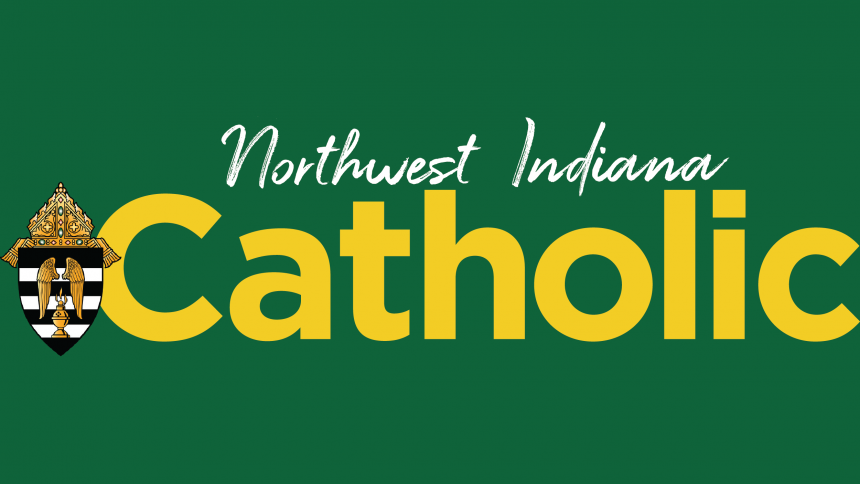
As published in the Northwest Indiana Catholic on May 8, 2016
Sacraments and worship constitute the second pastoral priority for the synod. At the very center of our faith is the person of Jesus Christ, whom the documents of Vatican II name as the “Sacrament of the Father.” As Paul states in his letter to the Colossians, Jesus “is the visible form of the invisible God,” making the fullness of the Divine Mystery present, human, known and loved.
The Son reveals the Father and sends the Holy Spirit. In turn, the Church is the sacrament of Jesus, extending the grace, salvation and forgiveness that flow from the Christ event, continuing the mission of eternal life inaugurated 2,000 years ago.
In this context of understanding, the sacraments and worship of the Church reveal their true meaning. Through the sacraments, we receive our deepest identity as adopted children of the Father. God comes to dwell within our hearts and spirits through sanctifying grace. We receive the Holy Spirit and the forgiveness of our sins. We are fed with the Body and Blood of Christ. We are healed and sent to live the Gospel, in short, the saving fruit of Christ’s victory over sin and death is extended to humanity through the sacramental actions of the Church. The sacraments keep Jesus from simply becoming a pious memory of a good man who lived long ago.
In each sacrament, the Church offers a physical and visible symbol (water, oil, bread, wine, a man and woman in love, hands extended in absolution, a man called to serve the Church) and through the transforming power of the Holy Spirit invoked every time, the symbol becomes the reality of Christ’s saving, loving and healing presence. Perhaps, this dynamic is most profoundly visible in the case of the Eucharist, when the Church offers bread and wine which become the sacramental Body and Blood of Christ.
For Catholics, the Eucharist is of paramount importance for it forms the Church, extends the Paschal Mystery of Jesus’ death and resurrection, proclaims the Word and feeds us with the Body and Blood of Christ. In the Mass, we share already the life of heaven. That’s why, when people ask me what I think heaven will be like, I always reply that it will be a lot like going to Mass!
In heaven, we will worship and praise God, we will be gathered in a perfect comm of love, mercy, peace and truth and we will be one around the table of the marriage feast of the Lamb. Those three actions and experiences are precisely the heart of what the Eucharist is about. We practice here on earth what we hope to do perfectly in the Kingdom of God.
When figures in Scripture experience the overwhelming awesomeness of God’s presence, their immediately reflexive response is two-fold: they intensely feel their littleness and unworthiness and they worship the Lord.
Worship of God is the most human of activities, known and practiced in every culture throughout history. The original meaning of “cult” is not some weird group that brainwashes people, but rather “a system of religious veneration and devotion” which creates human community through a shared and practiced faith, which explains the deepest meaning of our common existence and experience.
“Cult,” properly understood and lived, creates “culture,” which constitutes a whole set of beliefs, assumptions, practices and relationships which flow from a particular way of looking at the divine and the human. If the practice of “cult” becomes erratic or warped, “culture” will be thrown into a profound crisis. Much food for thought lies in such a truth.
If the communal worship of God and the celebration of the sacraments are at the very heart of our faith and our humanity, we should be troubled by the fact that, on any given Sunday, roughly 70 percent of our baptized Catholics are not celebrating the Eucharist. This downward trend is also reflected in the numbers of baptisms, confirmations, confessions, marriages and priests. The lack of sacramental practice points to both a deep spiritual crisis in our culture, as well as a profound need for formation, conversion and dynamism among our leaders and people.
If we are doing the work of evangelization, spreading the Word and inviting people to Church, we need to make sure that we are asking them to become part of a community that is lively, flourishing, welcoming and loving, a parish which celebrates the sacraments well, where the preaching is excellent, both in its consolation and challenge, the music is uplifting and participatory and the people are highly engaged. If Catholic faith and practice lead up to and flow from the Eucharist, then we organize everything around this sacred principle.
The work of the synod will challenge us to celebrate the sacraments with greater understanding, zeal, love and gratitude and to invite others to experience the grace of God in them as we have been touched, healed, forgiven and loved through their efficacious power. The sacraments make the fullness of Jesus Christ present who, in turn, makes the fullness of God present.
It is as simple and profound as that!
+ Donald J. Hying
